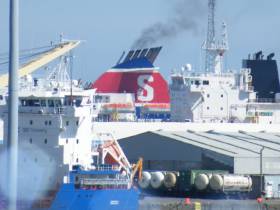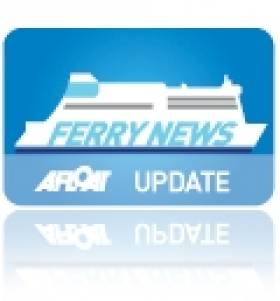Displaying items by tag: Ferry routes
Routes On Irish Sea Prepare for IMO Global Sulphur Cap 2020
Ferry operator Stena Line is currently engaging with freight customers on its Irish Sea routes to advise them of an important International Maritime Organisation (IMO) environmental regulation which will come into effect on 1st January 2020.
The goal of the Global Sulphur Cap 2020 Regulation is to significantly and progressively reduce sulphur emissions within all areas of international shipping and applies to all ship operators world-wide.
A number of regulations have been introduced over the past years aimed at making the shipping industry more environmentally friendly, such as the 2015 sulphur cap in the English Channel, North Sea and Baltic Sea. This new mandatory cap of 0.5% sulphur in ships’ fuel will now require all operators on the Irish Sea to ensure reduced emissions by switching to low sulphur fuels from 1st January 2020.
The new industry regulation will see operating costs increase outside of Stena Line’s control.
As a result, at the start of the new year all freight shipments on Stena Line’s Irish Sea routes will be subject to a higher fuel charge, in order to cover the additional costs incurred. Further details on these costs can be found on Stena Line’s freight website via this link.
Seasonal Services Set Sail ‘Four’ France
Also operating on the same route to Normandy are Celtic Link Ferries which run the modern sleek Italian built 800 passenger /200 vehicle ro-pax ferry Norman Voyager. Short wine breaks are from €200 return for a car, driver and a two-berth outside cabin. Additional passengers can travel for €10 each way and subject to sailing schedules passengers can stay in Cherbourg for up to five hours.
A third operator to France is Brittany Ferries which sails on the Cork-Roscoff route and which is served by their 'flagship' Pont-Aven. The €100m ferry has a swimming pool and this is unique to any route operating out of Ireland. The company are offering one-way fares from €70 per person based on a car with four adults in an inside cabin.
Sailings depart Saturday's from Cork and arrive in the Breton port 14 hours later, making the route the shortest and fastest of the four continental services.





























































